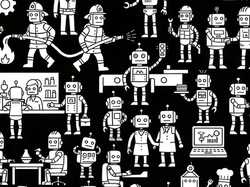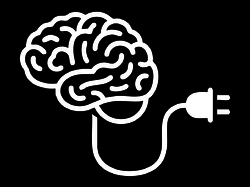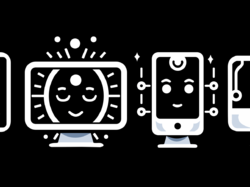In the New York Times opinion section, Gary Marcus and Ernest Davis suggest that today’s data-crunching model for artificial intelligence is not panning out. Instead of truly understanding logic or language, today’s machine learning instead identifies data patterns to recognize and reflect human behavior. The systems this approach creates tends to mimic more than think. As a result, we have some impressive but incredibly narrow applications of AI. The culmination of artificial intelligence appears to be making salon appointments.
Decades ago, the approach was different. The AI field tried to understand the elements of human thought—and teach machines to actually think. The goal proved elusive and the field drifted instead to what machines were already better at understanding, pattern recognition. Marcus and Davis say the detour has not proved helpful:
Once upon a time, before the fashionable rise of machine learning and “big data,” A.I. researchers tried to understand how complex knowledge could be encoded and processed in computers. This project, known as knowledge engineering, aimed not to create programs that would detect statistical patterns in huge data sets but to formalize, in a system of rules, the fundamental elements of human understanding, so that those rules could be applied in computer programs. Rather than merely imitating the results of our thinking, machines would actually share some of our core cognitive abilities.
That job proved difficult and was never finished. But “difficult and unfinished” doesn’t mean misguided. A.I. researchers need to return to that project sooner rather than later, ideally enlisting the help of cognitive psychologists who study the question of how human cognition manages to be endlessly flexible.
Today’s dominant approach to A.I. has not worked out. Yes, some remarkable applications have been built from it, including Google Translate and Google Duplex. But the limitations of these applications as a form of intelligence should be a wake-up call. If machine learning and big data can’t get us any further than a restaurant reservation, even in the hands of the world’s most capable A.I. company, it is time to reconsider that strategy.





